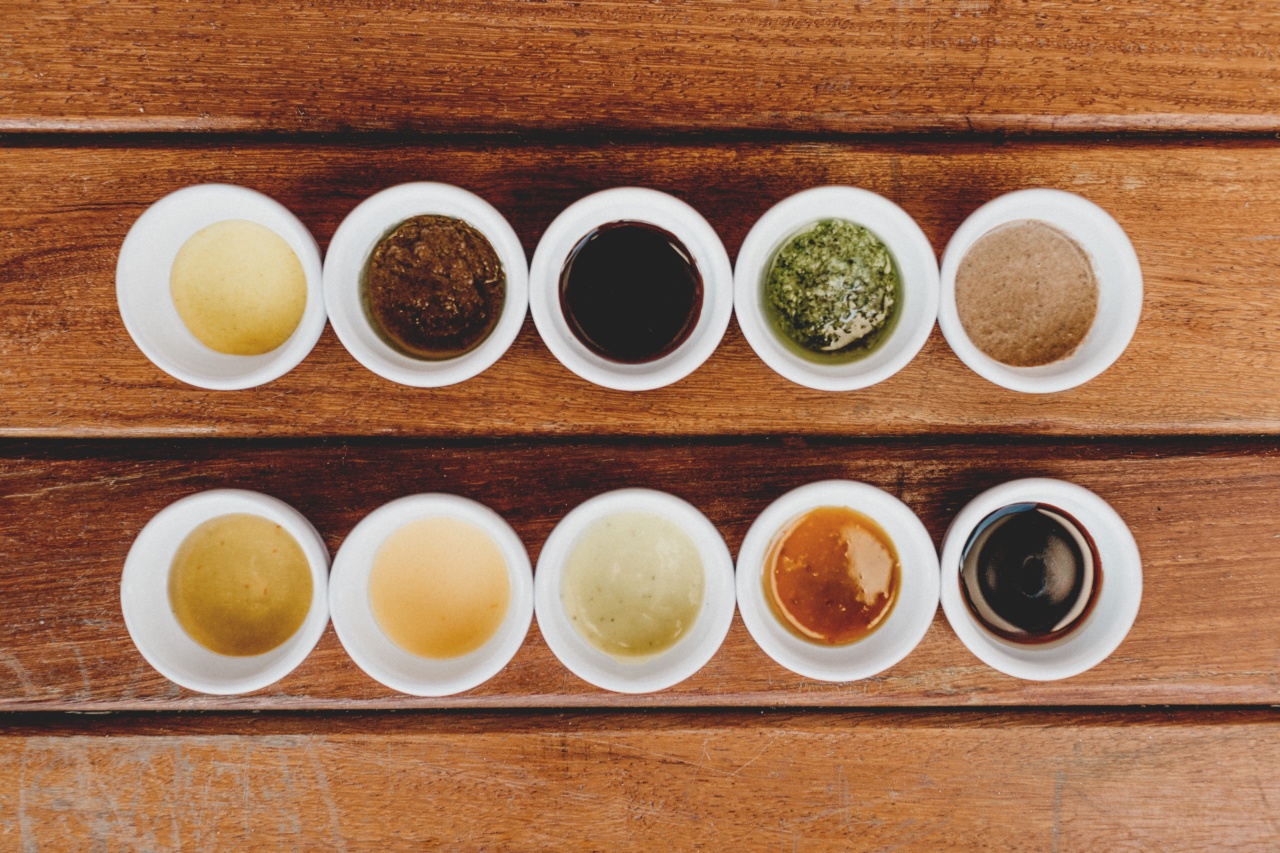Prostate cancer is one of the most common types of cancer among men worldwide. It is estimated that over 1.4 million new cases are diagnosed each year.
While genetics and age are known risk factors, research has shown that diet and lifestyle choices also play a significant role in the development of prostate cancer. In this article, we will explore the food choices that can help lower the incidence of prostate cancer.
1. Increase Intake of Cruciferous Vegetables
Cruciferous vegetables like broccoli, cauliflower, kale, and Brussels sprouts are rich in compounds called glucosinolates. These compounds have been found to have anti-cancer properties, including prostate cancer.
Studies have shown that men who consume higher amounts of cruciferous vegetables have a lower risk of developing prostate cancer.
2. Consume More Tomatoes
Tomatoes contain a powerful antioxidant called lycopene, which has been linked to a reduced risk of prostate cancer. Research suggests that lycopene can inhibit the growth of prostate cancer cells and reduce tumor progression.
Cooking tomatoes enhances the bioavailability of lycopene, so include tomato-based foods like tomato sauce and salsa in your diet.
3. Opt for Fish High in Omega-3 Fatty Acids
Oily fish like salmon, sardines, and mackerel are rich in omega-3 fatty acids, which are known for their anti-inflammatory properties. Several studies have shown an inverse relationship between omega-3 fatty acids and prostate cancer risk.
Including fish high in omega-3s in your diet can be beneficial for prostate health.
4. Increase Fiber Intake
A diet high in fiber has been associated with a lower risk of developing prostate cancer. Fiber-rich foods include whole grains, fruits, vegetables, legumes, and nuts.
Fiber helps regulate bowel movements and may reduce the risk of prostate cancer by reducing the exposure of the prostate gland to potential cancer-causing agents.
5. Consume Green Tea
Green tea is rich in antioxidants called catechins, which have been shown to have anti-cancer properties. Some studies have suggested that regularly consuming green tea may lower the risk of developing prostate cancer.
Additionally, green tea has been associated with other health benefits, including improved heart health.
6. Include Soy-Based Foods
Soy-based foods like tofu, tempeh, and soy milk contain compounds called isoflavones. These compounds have been found to inhibit the growth of prostate cancer cells.
Some studies indicate that regular consumption of soy-based foods may reduce the risk of prostate cancer. However, further research is needed to fully understand the relationship between soy and prostate health.
7. Limit Red Meat Consumption
Evidence suggests that a high intake of red and processed meats may increase the risk of prostate cancer. Red meats are rich in saturated fats and can contribute to inflammation, which has been linked to cancer development.
To lower your risk, limit the consumption of red meat and opt for leaner sources of protein like poultry, fish, and plant-based protein alternatives.
8. Choose Healthy Fats
While some fats are beneficial for prostate health, others can be detrimental. Trans fats and saturated fats, commonly found in processed foods and fried snacks, have been associated with an increased risk of prostate cancer.
On the other hand, monounsaturated and polyunsaturated fats found in foods like avocados, nuts, and olive oil can support prostate health.
9. Consume Selenium-Rich Foods
Selenium is an essential mineral that acts as an antioxidant and may help reduce the risk of prostate cancer. Including selenium-rich foods in your diet, such as Brazil nuts, seafood, eggs, and brown rice, can contribute to prostate health.
However, excessive selenium intake may have adverse effects, so moderation is key.
10. Moderate Alcohol Consumption
Excessive alcohol consumption has been linked to an increased risk of various cancers, including prostate cancer. While moderate alcohol intake may have some health benefits, it is important to limit consumption to reduce the risk of prostate cancer.
The American Cancer Society recommends no more than two alcoholic drinks per day for men.
Conclusion
Diet plays a crucial role in prostate cancer prevention, and making healthy food choices can significantly lower the incidence of this disease.
Incorporating cruciferous vegetables, tomatoes, fish high in omega-3s, and fiber-rich foods can support prostate health. Additionally, consuming green tea, soy-based foods, and selenium-rich foods may provide further protection. Limiting red meat and alcohol consumption while opting for healthy fats is also essential.
By adopting a balanced and prostate-friendly diet, men can reduce their risk of developing prostate cancer and promote overall well-being.






























